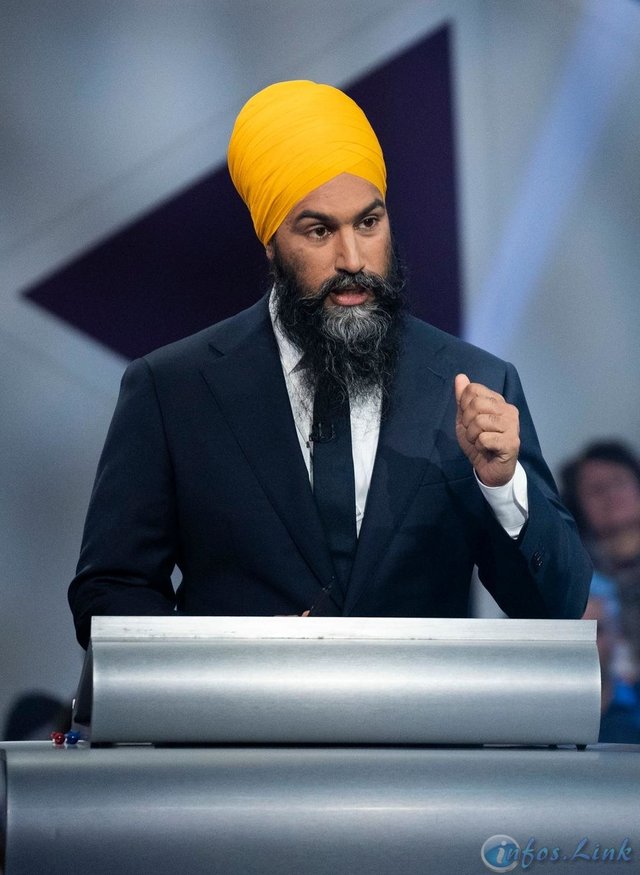
An NDP government would generate large deficits for the fulfillment of key promises, such as providing drug insurance for all.
"I believe very strongly in investing in people and I do not think we can build a better society and a better country by cutting services," said New Democrat Leader (NDP) Jagmeet Singh , Friday.
The financial framework of the political party, unveiled in Ottawa in the aftermath of the leaders' last pre-election debate, predicts a deficit of $ 32.7 billion in a first year of office. It is then estimated that there will be less negative balances of $ 18.3 billion in 2021-2022, $ 16.4 billion in 2022-2023 and $ 16.6 billion in 2023-2024.
As with the Liberals, there is a promise to keep the debt-to-GDP ratio around 30%.
"We have a lot of evidence, if we look back, with the provincial governments, that the New Democrats have managed their budgets well," said Singh.
The most important investments of a NDP government would be to put in place a universal drug plan. It is expected to inject $ 10.2 billion in a first year, followed by annual amounts of $ 10.6 billion in 2021-2022 and $ 11 billion in each of the last two years of the mandate.
There is also a promise of $ 1.45 billion a year for measures to improve transit systems and other clean modes of transportation.
The NDP also plans to invest $ 1.88 billion in 2020-2021 for its dental insurance plan. The envelopes dedicated to this program would then be approximately $ 800 million for each of the other three years of the mandate.
M Singh's troops expect to be able to tap into new revenues generated by a heightened fight in tax havens, a tax on web giants and increasing the tax rate on capital gains.
This last measure is the one that would pay more to the state, according to the NDP plan. We anticipate revenues ranging between $ 8 billion and $ 9 billion a year.
Another paying measure would be to tax those who earn more than $ 20 million annually. It is expected to reach $ 5.6 billion in 2020-2021, $ 6 billion the next two years and $ 6.8 billion in 2023-2024.
Mr. Singh believes that Quebecers could benefit from the NDP's universal drug insurance commitment, in the same way as other Canadians.
"Yes Quebec was avant-garde, but the program that currently exists is too expensive," he said Friday. It's one of the most expensive in the world. "